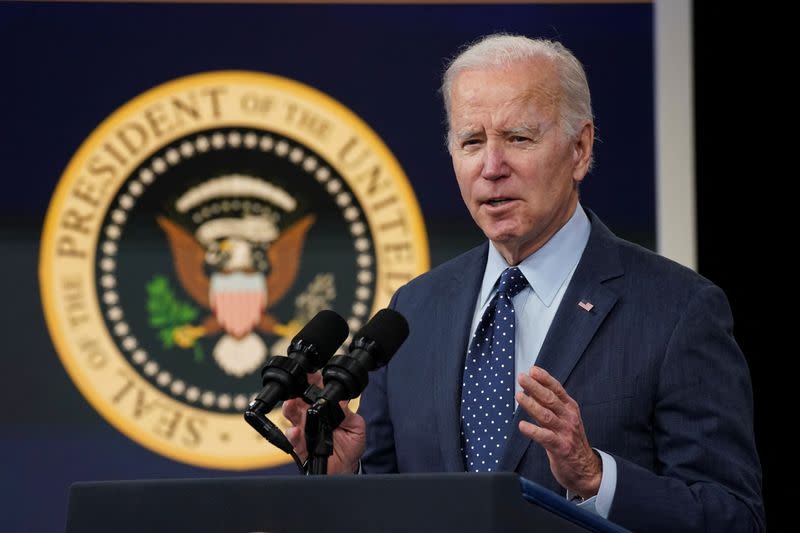US officials are set to outline their plan to ban some US investments in sensitive technology in China.
The move – on Wednesday – will require that the government be notified of other investments, a senior official said.
The plans are aimed at preventing US capital and expertise from helping develop technologies that could support China’s military to modernize and threaten US national security.
Sources revealed late last week that President Joe Biden was expected to issue a the long-awaited executive order to screen outbound investments in sensitive technologies in China this week.
ALSO SEE: China’s Trade to the US and EU Plunged Further in July
Sullivan: ‘It’s not a technology blockage’
The White House declined to comment on Tuesday, but Biden administration officials have stressed for months any restrictions on US investment in China will be narrowly targeted.
“These are tailored measures,” National Security Adviser Jake Sullivan said in April. “They are not, as Beijing says, a ‘technology blockade.’”
US Commerce Secretary Gina Raimondo said in March the administration did not “want to be overly broad…. Anything that’s overly broad hurts American workers and the economy.”
Equity, venture capital or JVs in chips, quantum, AI
The administration is expected to target active investment such as US private equity, venture capital and joint venture investments in China in semiconductors, quantum computing and artificial intelligence.
Most investments captured by the order will require that the government be notified about them, sources have said. Some transactions will be prohibited.
The New York Times reported on Tuesday that the Biden administration plans to require firms making investments in a broader range of Chinese industries to report that activity, which will give the US government great visibility into financial transactions between the United States and China.
Sources previously said investments in semiconductors that will be restricted are expected to track export control rules for China issued by the US Department of Commerce in October.
Move likely to allow time for feedback
Emily Benson, of the Center for Strategic and International Studies (CSIS), a bipartisan policy research organization, said she expects investments in artificial intelligence to be prohibited to military users and uses, and that other investments in the sector will only require notification to the government.
Benson said the burden will fall on the administration to determine what AI falls into the military category.
“They will have to draw a line of what constitutes a military application of AI, and to define AI,” said Benson, director of CSIS’s project on trade and technology.
Biden’s order is expected to direct publication of a notice of proposed rule-making. It is not expected to take effect immediately and to provide for a comment period to consider industry feedback before being finalized.
- Reuters with additional editing by Jim Pollard
ALSO SEE:
US Seen Clamping Down on Investment in China Funds
US Senate Passes Weaker Bill on China Tech Investments Scrutiny
China’s New Anti-Espionage Law Puts Firms at Risk, US Warns
Curbs on Chipmaking Metals ‘Just The Beginning’, China Warns
US to Cut China Access to Amazon, Microsoft Cloud Computing: WSJ
China Curbs Mean Permanent Loss of Opportunities for US, Nvidia Says
























